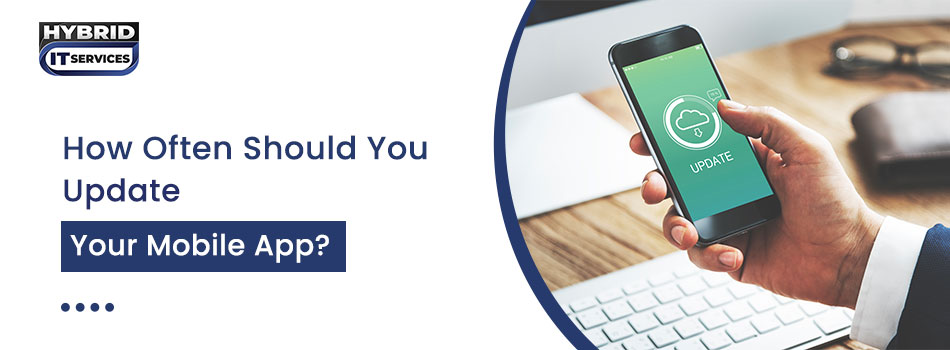Updating a mobile app is essential for maintaining its performance, security, and relevance. However, determining the optimal frequency for updates can be complex, as it depends on various factors including user feedback, technological advancements, security needs, competitive landscape, and development resources. Understanding these aspects can help you establish an effective update strategy.
Why Updating Your Mobile App is Crucial
Security and Performance
Updating your mobile app is essential for security and performance. Regular updates ensure that security vulnerabilities are patched, protecting user data from potential breaches. They also fix bugs and reduce crashes, providing a smoother and more reliable user experience. Enhancing performance through updates can result in faster load times and better battery efficiency, which are critical for user satisfaction.
Introducing New Features and Staying Competitive
Updates allow you to introduce new features and stay competitive in the market. By incorporating user feedback into updates, you can address their needs and improve the apps functionality. In this way updates boost user engagement and retention. Lastly keeping the app compatible with the latest operating system updates is also crucial to ensure it runs smoothly across all devices.
You May Also Read: What are the Benefits of Having an App for a Business?
Factors to Consider While Update Your Mobile App
There are multiple factors that you should consider before updating you app. Let’s Discuss:
User Experience and Feedback
From the user experience perspective, regular updates are crucial for ensuring a seamless and satisfying interaction with your app. Users expect apps to be free from bugs and to perform smoothly. Addressing issues promptly through monthly updates can significantly enhance user satisfaction. Additionally, actively monitoring user reviews and feedback can provide valuable insights into areas that need improvement. Quick, incremental updates based on this feedback demonstrate to users that their concerns are taken seriously, which can build loyalty and trust in your app. This proactive approach to user feedback can also prevent minor issues from escalating into major problems.
Technological Advancements
Keeping up with technological advancements is another key reason for frequent app updates. Both Android and iOS frequently release updates to their operating systems, and ensuring your app is compatible with the latest OS versions is critical. This often necessitates updates every few months.
Beyond compatibility, integrating new technologies that can enhance app functionality, such as augmented reality (AR) features or new payment methods, may also require updates. Adapting your app to leverage these advancements can keep it competitive and appealing to tech-savvy users.
Security Considerations
Security is a paramount concern for any mobile app. Regular updates are necessary to patch vulnerabilities and protect user data from evolving cybersecurity threats. If a significant security flaw is discovered, an immediate update is crucial to mitigate risks.
Furthermore, ensuring compliance with data protection regulations, such as GDPR, may necessitate updates to your app’s privacy policies and features. Regular reviews and updates in this area can help avoid legal issues and maintain user trust in your app’s commitment to data security.
Competitive Advantage
Maintaining a competitive edge in the dynamic mobile app market often requires frequent updates. Introducing new and innovative features regularly can help your app stand out. A quarterly update schedule can be effective in keeping your app fresh and engaging for users. Additionally, staying attuned to market trends and user demands is essential. The mobile app market is constantly evolving, and adapting your app to meet these changes can ensure it remains relevant and attractive. During periods of rapid market change, more frequent updates may be necessary to keep up with competitors and meet user expectations.
Development Resources and Costs
Balancing the quality and frequency of updates with available development resources and costs is a crucial consideration. Regular updates require significant time and effort from your development team. Establishing a sustainable update schedule, such as bi-monthly or quarterly, can help manage these resources effectively. It’s important to ensure that each update is substantial enough to warrant user attention and adds real value to the app, rather than pushing out updates too frequently with minimal improvements.
You May Also Read: How Can Custom Mobile App Development Boost your Business?
Effective Update Strategies
Feature Rollouts
- Incremental vs. Major Updates: Deciding between incremental updates (e.g., minor bug fixes and small improvements) and major updates (e.g., new features or significant overhauls) is important. Incremental updates can be more frequent, while major updates might be scheduled less often but with greater impact.
- Beta Testing: Implementing a beta testing phase for new features can help identify issues before a wide release. This can improve the quality of major updates and reduce the likelihood of post-release problems.
User Retention and Engagement
- Push Notifications: Informing users about new updates through push notifications can drive engagement and ensure users are aware of new features and improvements.
- In-App Announcements: Utilizing in-app announcements to highlight new features and updates can enhance user engagement and encourage exploration of new functionalities.
Seasonal and Event-Based Updates
- Seasonal Themes: Incorporating seasonal themes and event-based updates can make your app more engaging and relevant. For example, holiday-themed features or special event promotions can drive user interest and activity.
- Time-Sensitive Features: Releasing updates tied to specific events or trends can capitalize on their popularity and increase user engagement.
Conclusion
In conclusion, the frequency of mobile app updates should be determined by a careful assessment of user experience, technological advancements, security needs, competitive pressures, and development resources. A well-balanced approach, incorporating regular but manageable updates, can help maintain your app’s performance, security, and user satisfaction while ensuring it remains competitive in the market.






